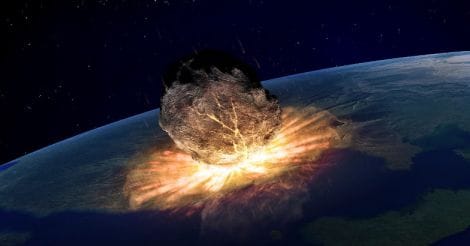Jamshedpur: An underground dark matter laboratory for conducting experiments in fundamental physics involving rare event searches was inaugurated Saturday in the oldest uranium mine at Jaduguda in Jharkhand.
Dr Sekhar Basu, Chairman, Atomic Energy Commission and Secretary, Department of Atomic Energy (DAE), inaugurated the facility at a depth of 555 metre in the Uranium Corporation of India Limited (UCIL) mine at Jadugoda, 30 km from here.
Speaking to reporters later at Jadugora mine premises, Basu said, "We knew of an estimated five per cent of the possible 30 per cent matters existing in the universe and this new facility will help us to research about the unknown matters."
"We have started working on it but it does not mean we will be successful,"he said.
"However, we will progress step by step to achieve the desired result," he said.
The laboratory has been set up by the UCIL and Saha Institute of Nuclear Physics (SINP), Kolkata by utilizing the available infrastructure and underground facilities of the Jaduguda mine.
This new physics laboratory at UCIL will be the first of its kind in the country after closure of a similar facility at Bharat Gold Mine in Kolar, Karnataka in early 1992.
The present depth of Jaduguda mine is 905 meter. It is the second deepest operating underground mine of the country after Hutti Gold mine which is more than 1000 meter deep.
Asked about the projects the DAE was working on, Basu said, the department has plans to develop four cancer hospitals on the line of Tata Memorial Hospital, Mumbai, which he described as one of the best institutes of the world and the cheapest.
The hospitals are proposed at Vishakhapatnam , Mohali, Sangrur and at the BHU campus in Varanasi, he said adding that the investment proposal has to be cleared by the government, he said.
Emphasizing the need for participation of state governments, he said a small hospital with the co-operation of the Punjab government has been established at Sangrur.
Punjab government has provided the infrastructure including building, land and electricity to set up the hospital equipped with three modern operation theaters and six specialty wards.
The DAE has provided manpower, equipment and is bearing the regular expenses, he said.
The DAE has also been asked to develop a hospital in the campus of Banaras Hindu University (BHU) and a Railway hospital, which were not in a good shape, he said.
Basu also offered technology support to the Tatas, for their proposed ten hospitals across the country.
On the nuclear energy front, the DAE Chairman said, the department has plans to generate an additional 14,000 Mw electricity by 2030.
"We have an installed capacity of 6780 MW from 22 reactors in operation and additional 21 reactors are in various stages of installations", he said expressing hope that the department could produce 14,000 Mw of electricity from these reactors in 10/12 years.
About the uranium production in the country, C K Asnani, chairman-cum-managing director of UCIL said, the UCIL has plans to enhance the production capacity of uranium by ten fold by 2030.
Apart from its proposed mine in Rahil, Rajasthan and Gogi in Karnataka, he said the production capacity would be increased by two/three fold at Turampalle mine in Andhra Pradesh and expansion of operations would be carried out at Narwa Pahar mine in East Singhbhum district.
Read more at: Latest in Nation | Rape convict Gurmeet has no place in airport VIP lounges: Center

























 Artwork of an asteroid hitting earth. Getty Images
Artwork of an asteroid hitting earth. Getty Images